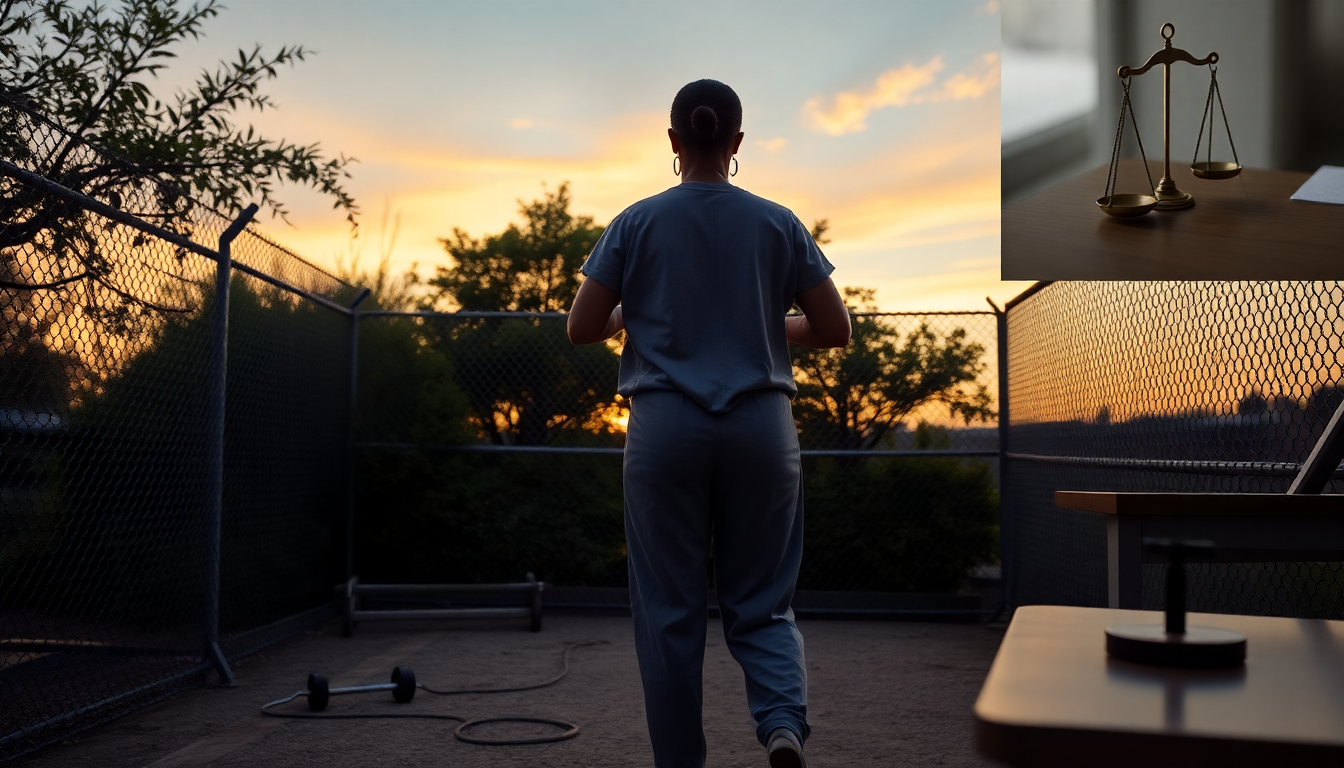Table of Contents
Ghislaine Maxwell, the convicted associate of Jeffrey Epstein, is navigating the challenging waters of her imprisonment while also appealing her conviction. Serving a twenty-year sentence at FCI Tallahassee, she’s not just sitting idly by; Maxwell has found a way to maintain a fitness routine, showcasing her resilience as she battles her legal issues. Recently, her family has raised concerns about the fairness of her trial, particularly in light of new developments surrounding Epstein’s investigations. But what does this mean for her future?
Decoding the Charges and Legal Proceedings
In 2020, Maxwell was convicted for her role in Epstein’s infamous sex trafficking operation—a case that has captured media attention and sparked public outrage. As she serves her time, her family argues that she didn’t receive a fair trial, pointing to alleged legal missteps and the government’s handling of crucial evidence. Currently, Maxwell is appealing her conviction, claiming she should not have faced prosecution due to a previous plea agreement made with Epstein, which allegedly promised immunity for his co-conspirators. Does this agreement hold any weight in her appeal?
The legal maze surrounding her appeal is quite intricate. Maxwell’s legal team is preparing to file a writ of habeas corpus in the Southern District of New York. This legal strategy could challenge the legitimacy of her imprisonment based on new evidence, highlighting the ongoing friction between her team and federal prosecutors, who are accused of misconduct that could sway the trial’s outcome. Are we witnessing a potential game-changer in her case?
Moreover, the implications of the 2007 non-prosecution agreement between Epstein and federal officials have become central to Maxwell’s arguments. Critics assert that this agreement was overlooked when charges were filed against her, raising significant questions about fairness in the judicial process. While lower courts have dismissed these claims, Maxwell is now seeking intervention from the Supreme Court, which could dramatically alter her legal landscape. Will the highest court weigh in on this controversial issue?
Life Behind Bars: Fitness and Routine
Amid the seriousness of her situation, Maxwell has been seen maintaining an active lifestyle in prison. Reports suggest she engages in various physical activities, like walking and jogging on the prison track. This commitment to fitness not only serves as a much-needed stress relief but also reflects her determination to stay physically and mentally strong during her ongoing legal battles. How does one stay motivated in such tough circumstances?
Her daily routine has caught public interest, contrasting sharply with the gravity of her situation. While her family continuously advocates for her release, emphasizing what they see as an unjust trial, Maxwell seems focused on her health and preparing for the legal challenges ahead. This stark contrast between her prison life and her fight for justice captures the complexities of her case and maintains the public’s fascination. Is this a strategy to keep her spirits high?
The Road Ahead: Legal Hurdles and Public Perception
As Maxwell’s case continues to unfold, public interest remains strong, particularly concerning the implications of her conviction for Epstein’s numerous victims and the broader context of sex trafficking in society. The recent release of documents related to Epstein’s case has sparked even more discussions, revealing ties to various high-profile individuals—though many have not been implicated in any criminal activities. What does this mean for those connected to Epstein?
The legal road ahead for Maxwell is riddled with challenges. If her appeals fail, she faces a long sentence that could keep her incarcerated until July 2037. This looming reality weighs heavily on her future, compounded by relentless scrutiny from both the media and public opinion. As her family continues to advocate for her, claiming she is a scapegoat in a larger narrative, the complexities of the judicial process remain ever-present. How will this story continue to unfold?
In sum, Ghislaine Maxwell’s situation serves as a reflection of broader societal issues surrounding justice, accountability, and the intricacies of our legal system. As she fights for her rights from behind bars, the implications of her case will likely echo for years, shaping perceptions of justice and the ongoing battle against human trafficking. What lessons can we draw from her story?


